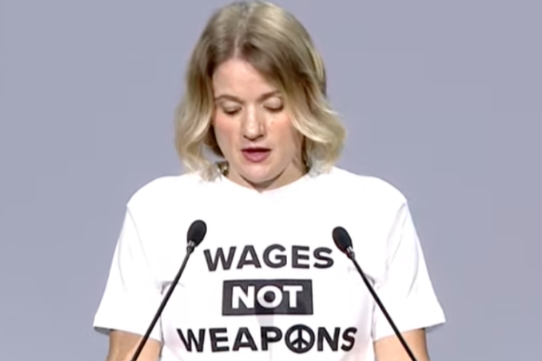Outside the subway in a Tokyo suburb, I saw a large group distributing flyers about the proposed military base in Henoko. I’d heard many speeches on the subject at the World Conference Against A&H Bombs in Hiroshima and Nagasaki earlier in August. There, I’d picked up a copy of a publication titled ‘What Okinawa wants you to understand about the U.S. military bases’.
‘Okinawa Prefecture understands the need for the Japan-U.S. security arrangement’ the publication begins. Yet, they ask, why must 70% of all military bases in Japan used exclusively by the U.S., be on Okinawa? They go on to describe the devastating affects the proposed base will have on an internationally precious subtropical sea area, rich in biodiversity, and the significant economic impact of housing another base on the Prefecture.
Okinawa Prefecture is composed of 150 islands between Taiwan and Japan's mainland. I had an opportunity to visit Naha, the capital of the Prefecture, and some of the nearby Kerama islands. The island of Aka was particularly spectacular – white sands, lush greenery, tropical fish in clear blue water. It was paradise. But a black dot appeared in the sky and the roar of a military airmobile – a huge vessel with two helicopter spinning motors and a body big enough to carry a bus. It flew low overhead, circling round us for an hour, creating a deafening din and large waves beneath.
Back in Naha, travelling through the city, I noticed large fenced off quarters with military vehicles behind the gates, graveyards full of American names and an ‘American Village’ amusement park for workers at the bases.
Okinawa Prefecture’s publication tells of the daily impact of living amongst the bases that Okinawans currently face. Osprey fly low over schools and hospitals at all hours, water has been contaminated from toxic leaks, and there have been over 5,000 arrests of U.S. military affiliated personnel, including horrific cases such as the abduction and rape of an elementary school girl by three U.S. soldiers in 1995 and rape resulting in death of an Okinawan woman by a U.S. military base civilian worker in 2016. After such crimes, as well as military accidents such as plane parts falling from the sky into school playgrounds, there is widespread distrust of the bases and there are frequent protests.
Time is running out to stop the proposed base in Henoko. The final communique of the World Conference Against A&H Bombs calls for international solidarity with the people of Okinawa. We must not let the U.S. turn more of this tropical paradise into a launchpad for their next war.
Article for London Region CND by Hannah Kemp-Welch











